One of the megagames I most regret missing out on was By The Grace of God by Ed Silverstone. Luckily for me, he put it on for Pennine Megagames at the end of November!
Ed managed to put on two megagames in as many months, as last month’s By Other Means was also his design. This one was very different though. It is set during the English Civil War, when Charles I was on the throne and Oliver Cromwell was trying to limit his power.
Unfortunately due to the difficulty to recruit attendees for megagames following the Covid pandemic, plus Storm Arwen causing travel difficulties, the game wasn’t able to run at full capacity. However, it was still an excellent game, and here’s how it went…
[Content warning: brief mention of child loss.]
The Royalists in St Germain
I had the exciting role of Queen Henrietta Maria, wife to Charles I and a princess of France. We were part of the royal court in exile in the royal palace just outside Paris.

In the original design, my team had four players, but on the day it was just myself and a first time player called Ian. Ian was there as Edward Knott, our spymaster in chief, who would spend most of his day on the political map stirring up unrest in our enemies’ armies.
We were also supposed to have Prince Rupert, my nephew and our military commander, and Lucy Hay, an influential socialite and intriguer in London. Instead, we were given their player cards and could choose to act as them for a turn. We could also take minor actions using their player tokens.
Our allies and ambitions
Broadly, we were part of the Royalist team, and there were four other factions who started the game aligned with the King.
Incidentally, King Charles I was played by Tim, my IRL husband, and let me start by saying that I am so glad I’m married to Tim and not Charles. But more on that later…
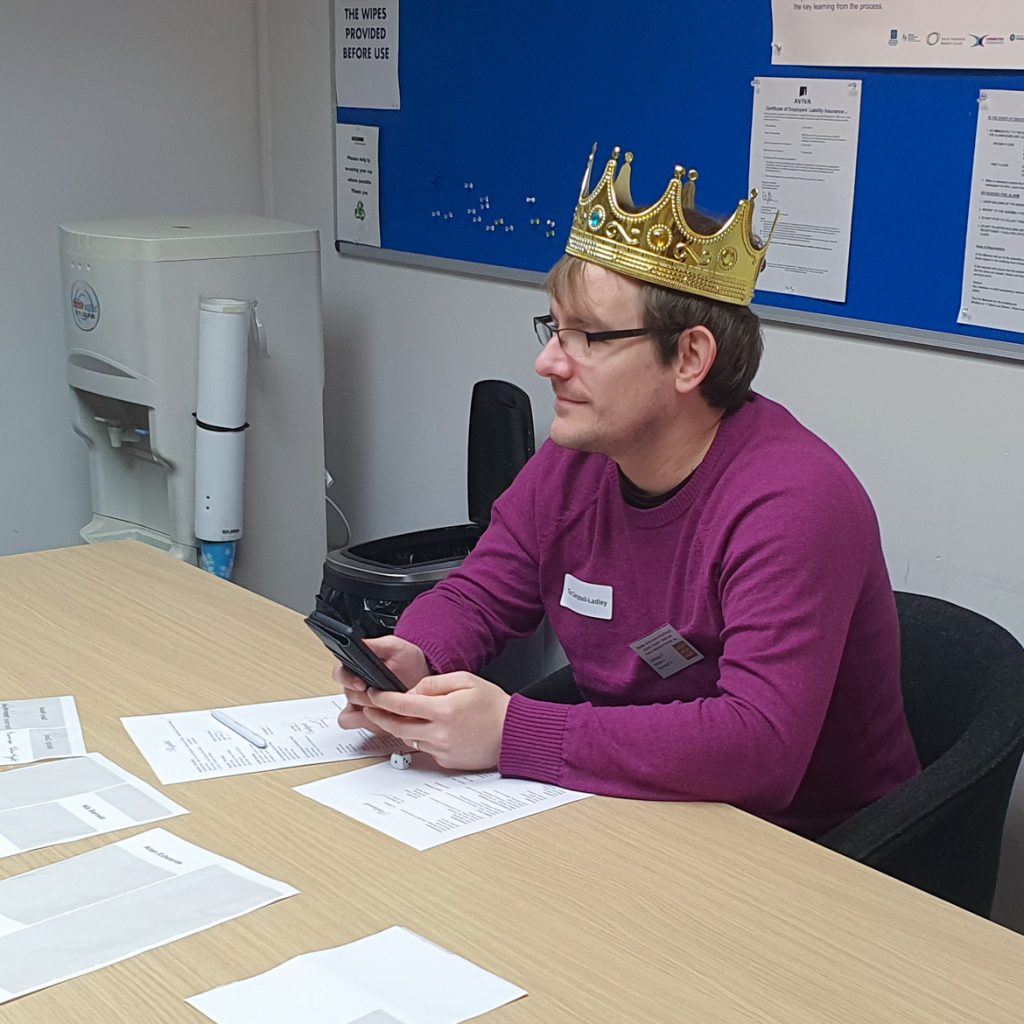
One of the other Royalist factions was the Royalists in the Hague. This team included my son, Prince Charles (later Charles II), and also Jane Whorwood, the King’s official mistress. I actually forgot this detail for the entire game… probably a good thing, for our relationship!
Another key Royalist team was the Scottish Royalists, led by James Hamilton (played by Mr Megagame). Elsewhere, there were the Irish Church Party and the Irish Old English party.
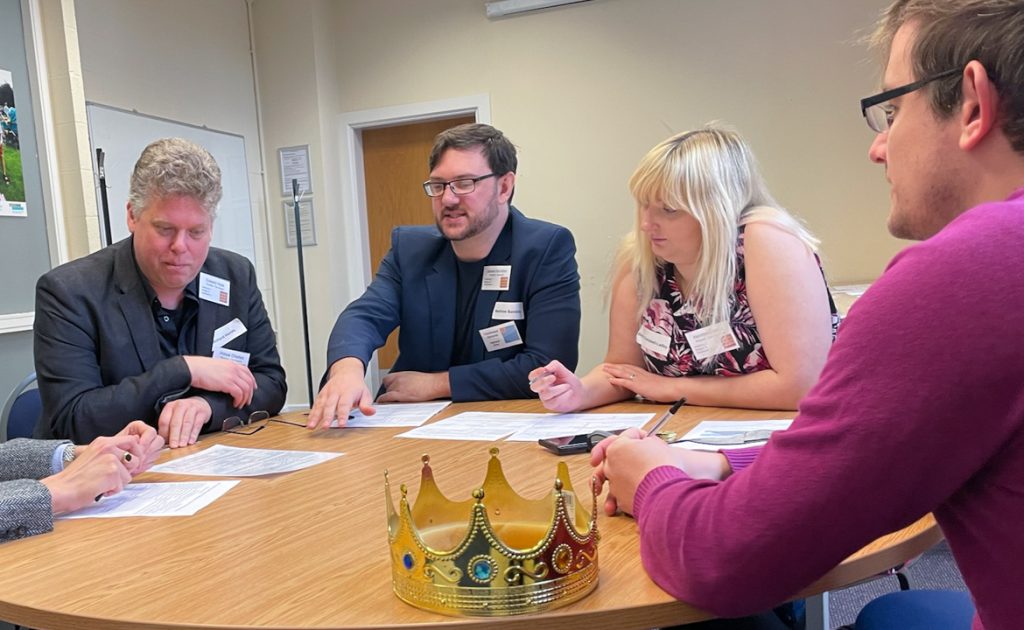
Image credit: Rob Grayston
All of us firmly wanted Charles back on the throne as quickly as possible, but we all had differing priorities about what any potential settlement with Parliament would look like. We wanted a strong Episcopalian church, permissions for recusants (Catholics) to practice their faith, and dissenters (Reformed) to be punished. This was especially important for me, as a Catholic.
Meanwhile, the Hague Royalists were too willing to compromise, and the Scots and Irish wanted increased independence, and had wildly different religious views to each other (and to us). It was going to be something of a challenge to get the five of us on the same page, never mind…
Parliament
The rest of the game were Parliamentarians. Seven teams to our five (three if you don’t count the Irish, which tbh often we didn’t).
You’ll probably have heard of Cromwell, who headed up a team of Puritans who wanted to abolish the Crown completely. There were also the Providence Island Company (basically Puritans), the Levellers (nutjobs who wanted male sufferage – a vote for all men), the Independents (radicals who wanted independence of church and state), the Presbyterians (who opposed our Episcopalian church)…
There were only two Parliament teams that we thought we might have anything of a common ground with. The Middle Party basically wanted a lovely compromise between the Crown and Parliament. And the Covenanters, another Scottish team who didn’t object to the King’s rule but wanted a bit more independence and ideally a more Scottish church in England. Oh, and the Covenanters were also who happened to currently hold the King – he’d surrendered to them at the end of the most recent conflict.
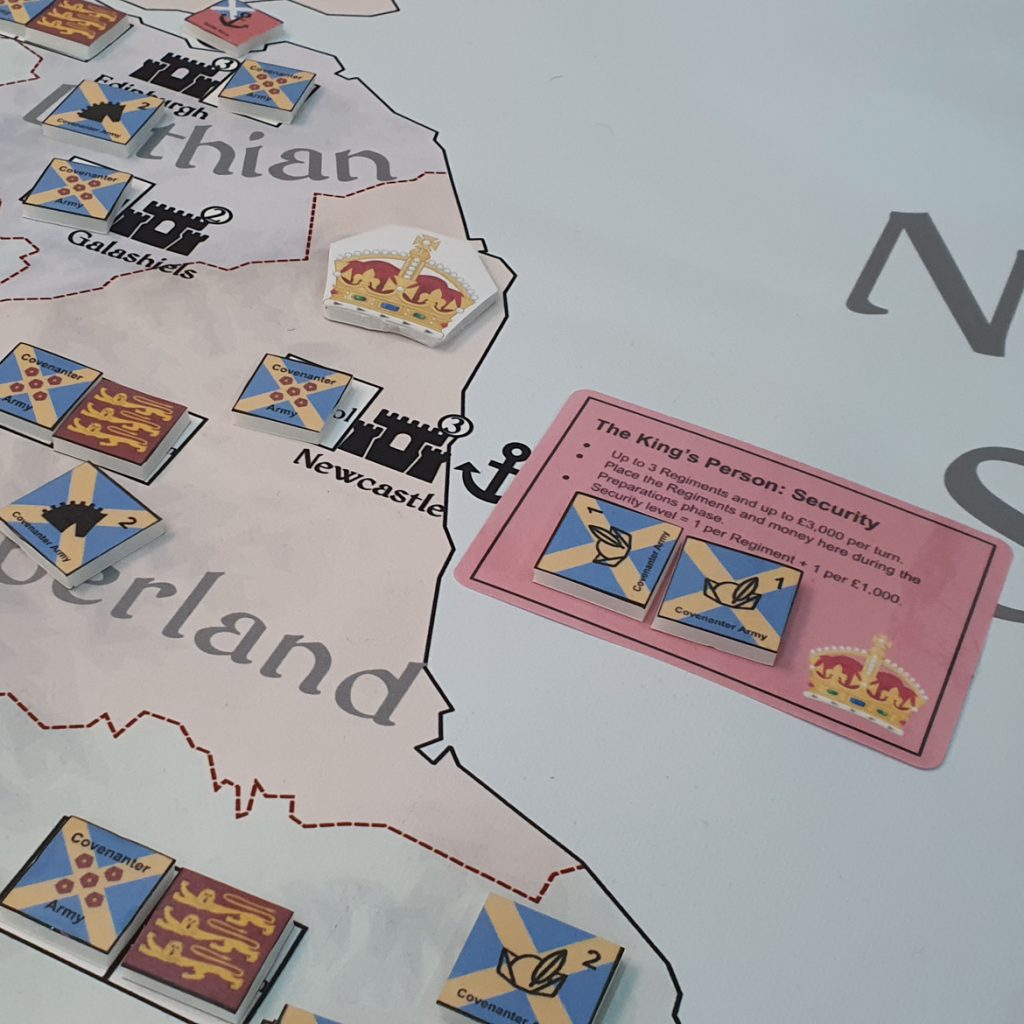
Early negotiations
My first action for the first turn was clear – get an audience with my husband! I requested this of Archibald Campbell, head of the Covenanters, and he said… no. Not without lining his pockets. I was outraged, as I watched the Scottish Royalists, the Hague Royalists, even the Middle Party, part with cash and be escorted to his chamber.
I threw myself instead into the first real challenge of the day – get a proposal on the table with the King’s seal. I would work out how to present it to him for his seal later. Now, I needed to work out what the proposal would be!
I started off my writing down exactly what I would want in an ideal world. The return to pre-war division of powers between Parliament and the King; an Episcopalian Arminian church (I didn’t suggest Catholic – I wanted this to have a chance). Permission for recusants; suppression for dissidents. Parliament’s composition as pre-war, but with the inclusion in the House of Lords of the 23 people that Charles had enobled during the course of the war. And religious independence for Ireland – mostly because there were a lot of good Catholics over there.
Then I took it to my “allies”. As expected, the Scots demanded their independence, the Royalists in the Hague suggested that we permit both recusants and dissidents. Even the Middle Party chimed in, suggesting that the management of the treasury could be split between King and Parliament.
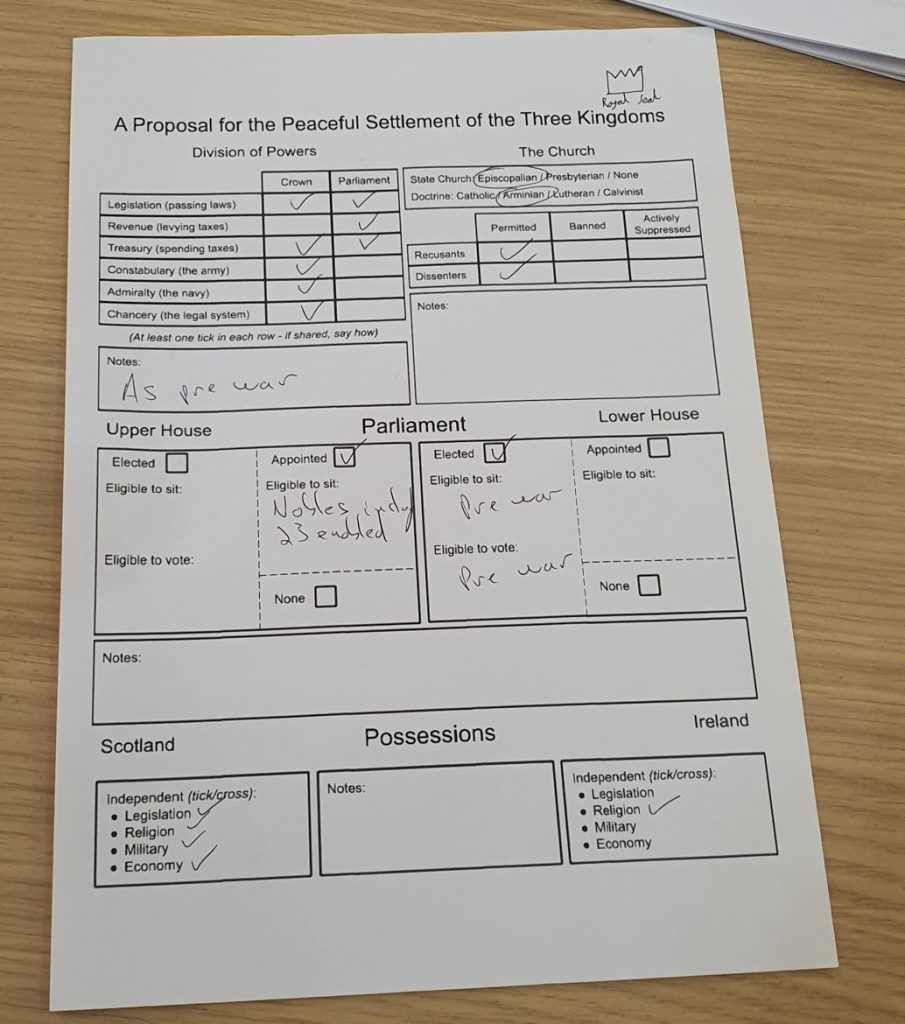
It was early in the game to start making compromises, but someone had to. In the end, we all did. Then, at long last, I was permitted to see my husband, and put it before him.
And this was the point at which I realised how today was going to go. The King took one look at it and said with some bemusement, “but aren’t we winning?”. No, we were not winning, and we would not win. We would need to settle this politically rather than try and force it through militarily. But those who wanted to win the King’s favour would never tell him this – and we all wanted the King’s favour.
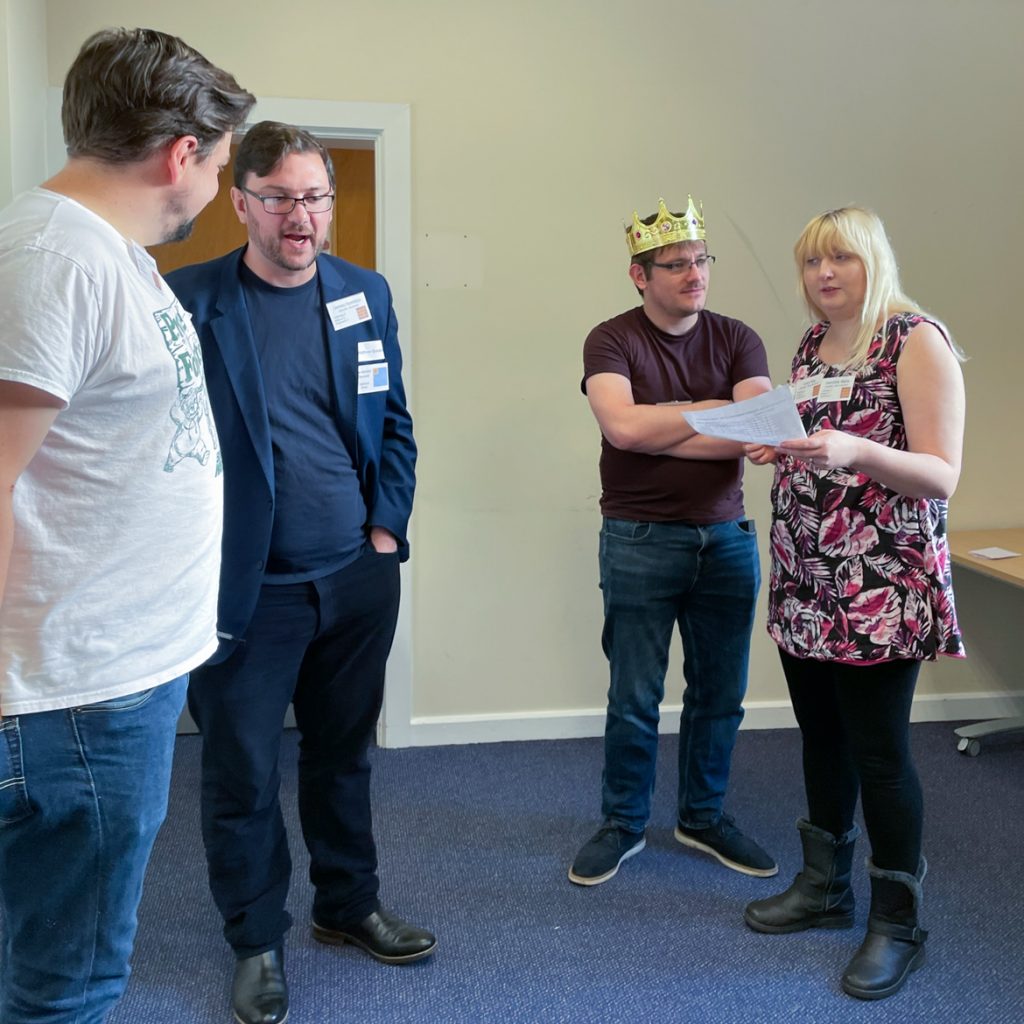
Nevertheless, we got his seal of approval, and we had quite a number of parties signed – all the Royalists, the Middle Party, and even the Covenanters! I mentally re-evaluated my relationship with them.
It’s Cromwell, innit?
Towards the end of the first turn, Campbell sidled up to me and confided that the Puritans had demanded the immediate return of the King for trial and execution. I was outraged, and went immediately to the French (NPC control). They were similarly outraged – threatening the life of one who was chosen by the grace of God? Blasphemy. They sent me a significant chunk of money, which I passed on to the Covenanters straight away.
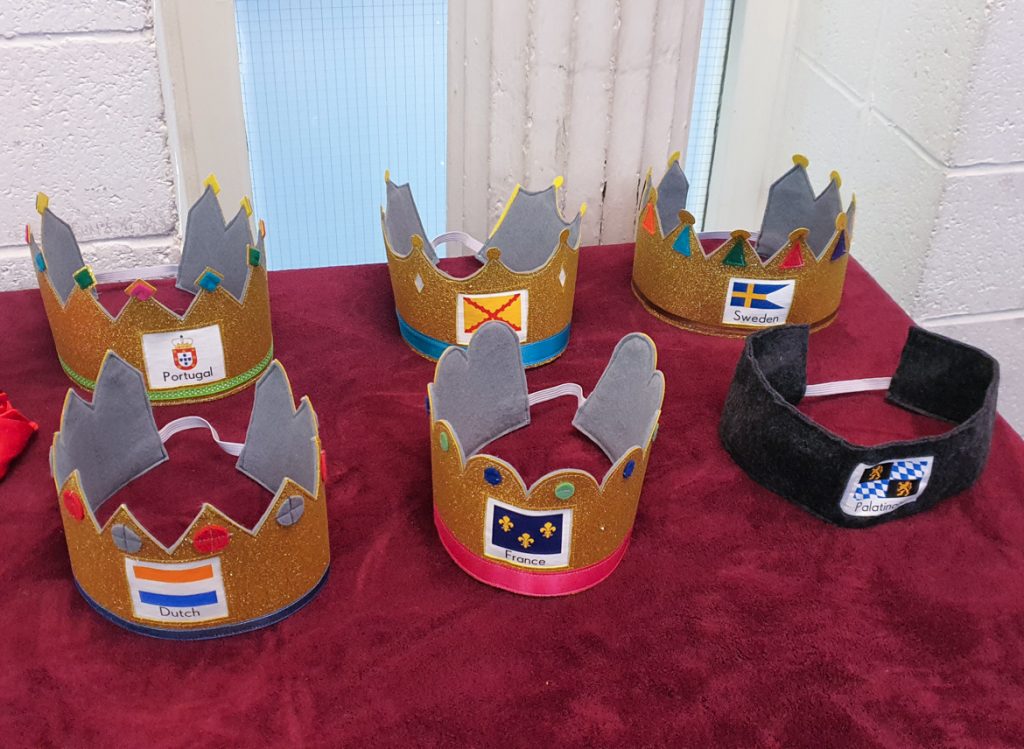
It was only afterwards I wondered if this was just a clever lie to get money out of me.
I went and asked Cromwell if he’d said that. He denied it, I said that the Covenanters were insistent that he’d said it. He said, “well of course they’d say that”.
I took this to Campbell and he said “well of course he’d say that”. Without any more to go on, except the weight of history and the knowledge that the Covenanters had signed our treaty, I let it fall from my mind.
Two steps forward, three steps back
The next job with our proposal was to get it through Parliament, where we were likely to get a tougher fight. Thus far, we’d not really compared notes with what the Parliamentarians wanted. Not for long though, as they soon produced a proposal themselves – restricting the King’s powers to mostly ceremonial, and removing the state church. Not on our watch!
The turn we made it to Parliament, many of the Parliament players weren’t physically there. The player shortage meant that many players had to dual-hat as politician and commanders. They could still vote, but we could plot in peace.
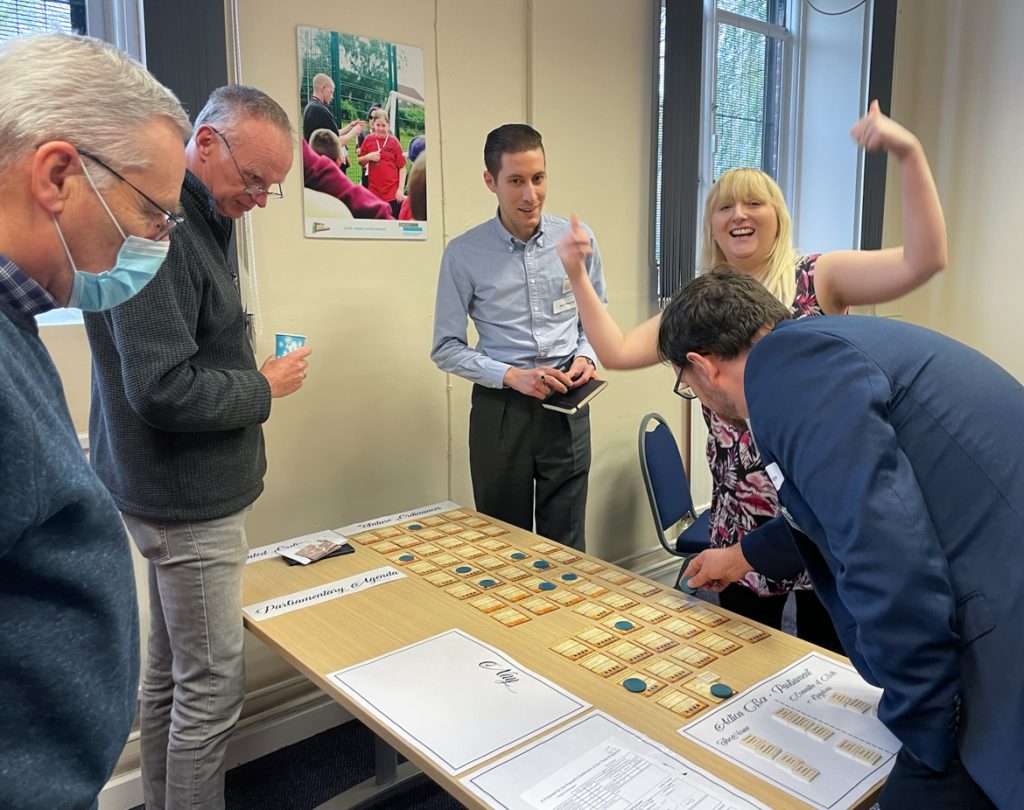
We managed to get our proposal on the floor with a heavy swing of our political influence. This could have been it – we could have the King’s Seal and Parliament’s Seal and have the future of the realm settled by lunch.
But then it was thrown out of the room on a wording technicality (read: a clever card play by the other side), and we would have to resubmit it next turn. Funnily enough, it did actually have an IRL fault in the document, because we hadn’t decreed how the treasury management would be split between the King and Parliament.
We returned to the King, only to discover that the Covenanters had promised our armies would definitely make it to London very soon. So he’d removed his seal from the proposal because we could definitely win that battle. In reality, I think the Covenanter troops were still in Yorkshire…
Successes elsewhere
Meanwhile, my map player Ian was returning each turn with an enormous stack of influence tokens, which I was taking to vote in Parliament.
Our military token (as our player hadn’t turned up) was sat on the World Map, bringing in plenty of money from privateering. This did lead to a very awkward moment on turn two when I had to apologise to the French and return the money we accidentally plundered from their ships…
And the credibility of Parliament was already taking a beating, as they were not sending players or tokens to the negotiation table each turn. We were careful to always have a presence there, but they were not as attentive, preferring to focus their efforts on kicking the shit out of us.

Managing the King
The King removing his Seal from the proposal was followed by the Covenanters and Middle Party dropping their support. This meant that we needed to create a new proposal.
The Middle Party man, always keen to strike a compromise between us and the Parliamentarians, suggested the King should give up some control of other powers. Say, the army.
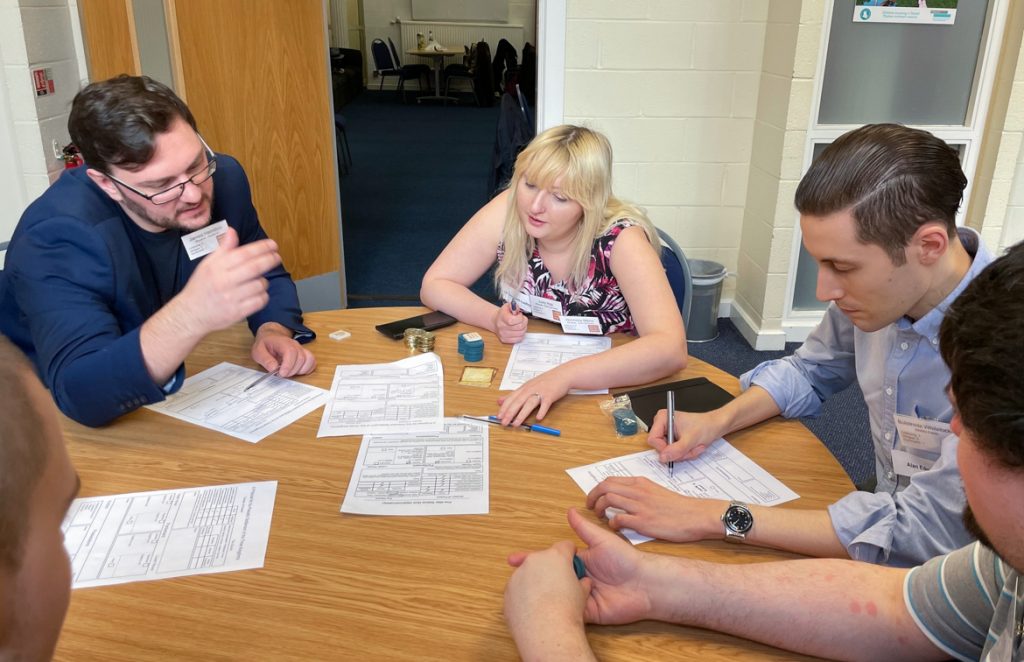
Unfortunately at this time, the Irish revolted. Surprisingly, this did not exactly endear the King to giving up control of his army, nor to let Ireland have religious freedom, which I was really hoping for. And anyway… weren’t we winning? (No.)
Then was a long drawn out conversation over what splitting the army control would look like. Would the King be the only person who could declare war? Would he be able to raise and dismiss the troops, or would that be handed over to Parliament? Who would name the generals? Who had rights to dismiss them?
I do not remember how many turns we spent arguing about this. I also don’t remember the number of times that the King said “but why are we even debating this? We’re going to win!”, but it was many.
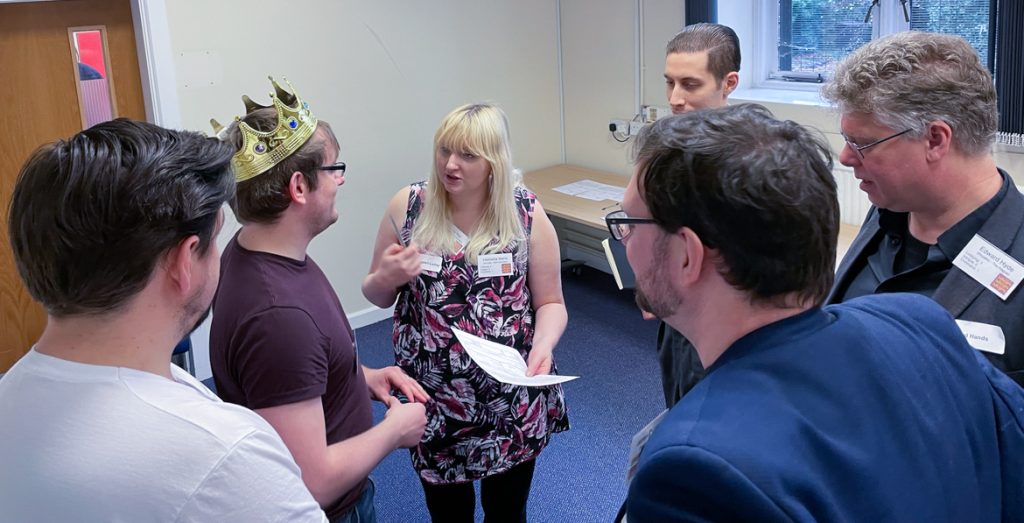
Cromwell’s mistake
The Puritans were upping the pressure on the Covenanters to hand over the King, and in turn they were upping the pressure to repay them for debts caused by the war. Finally, Cromwell arrived on a horse into Newcastle, carrying the entire Royal Treasury. He dismounted and counted out the 15 gold he owed the Covenanters, and rode away.
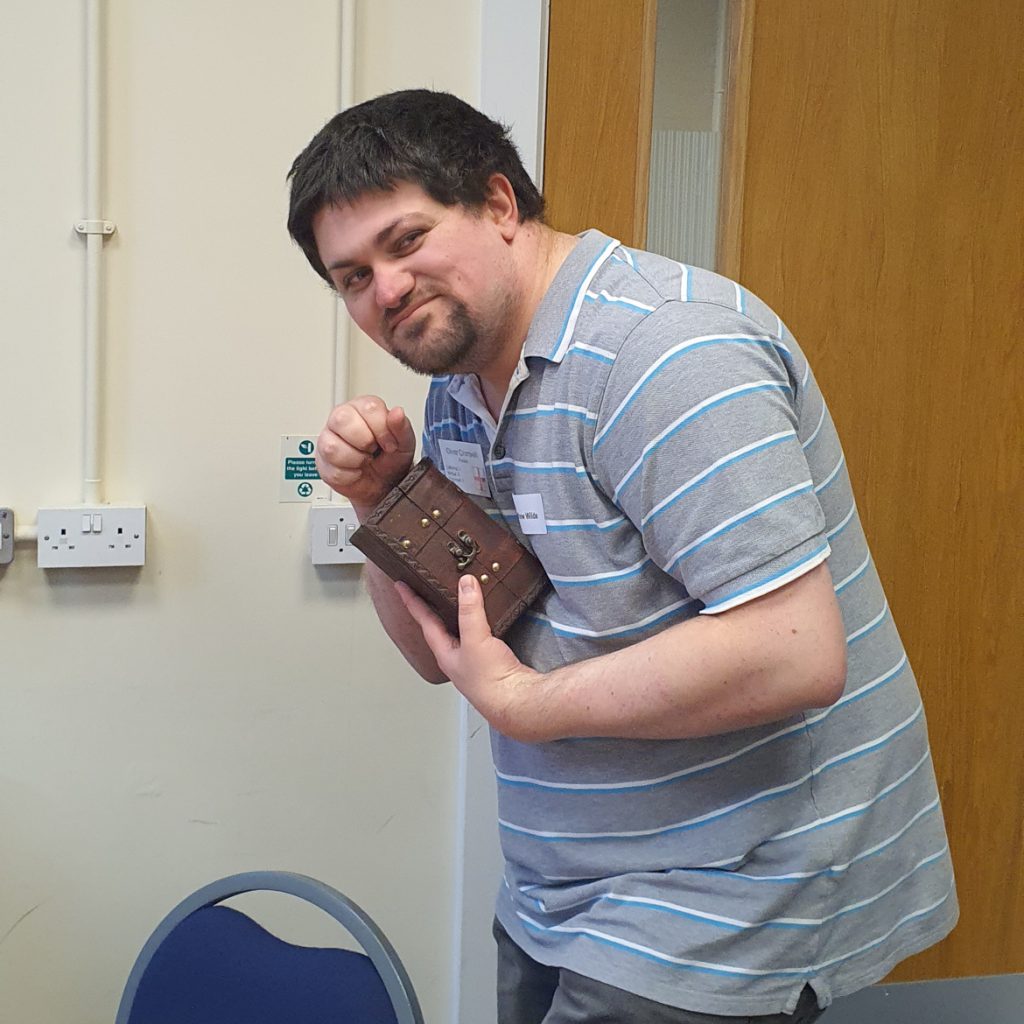
The next day, the Covenanters had declared for the King, and were spreading the story of the greedy Cromwell who had constant access to the Treasury and must be using it for nefarious purposes.
Meanwhile, the Levellers had taken control of the Houses of Parliament and forced out all those who supported the Royalist cause. We didn’t really take much note, because at this point we were arguing over the finer details of who gets to appoint generals.
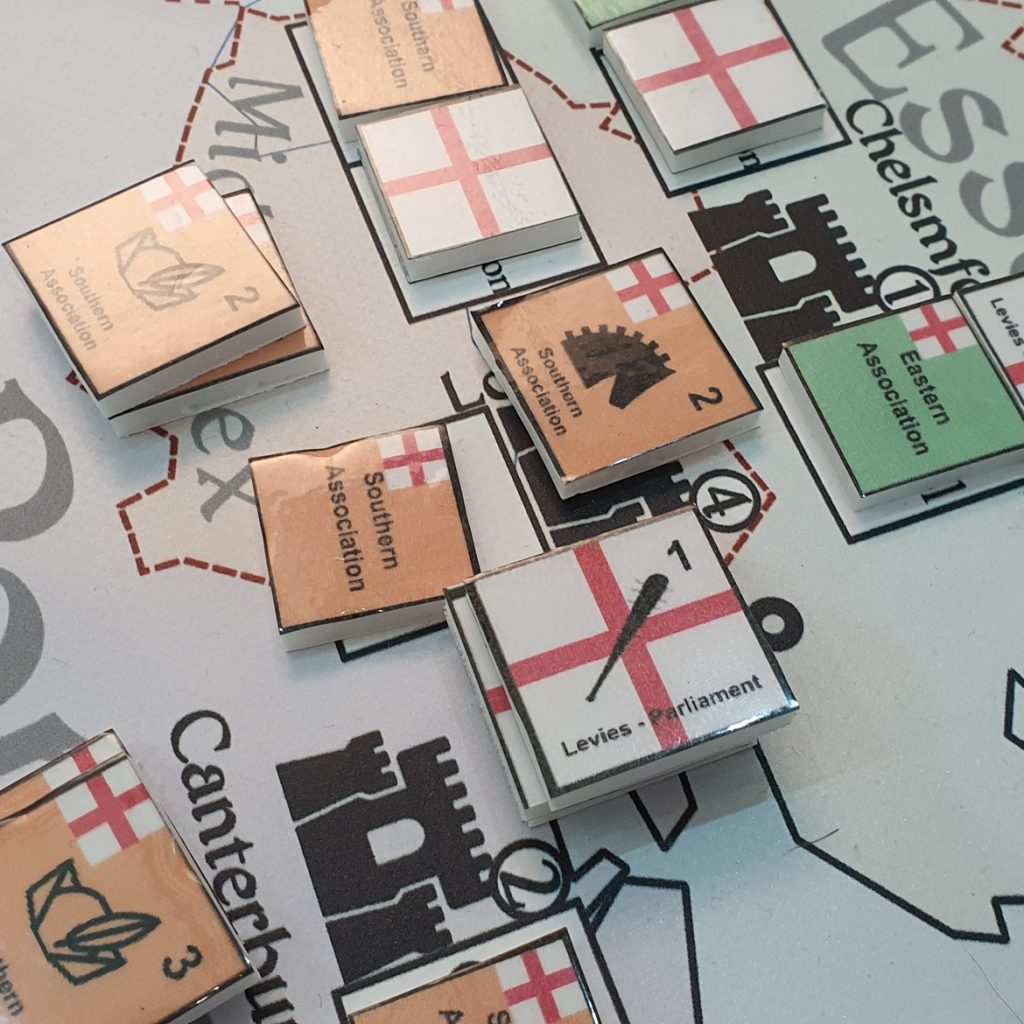
Funding the entire Royalist army
Several turns had passed, and we were no closer to getting the King’s seal on a proposal. He was insistent that we would win, Campbell of the Covenanters was keen not to disabuse him of that belief. So… it was starting to look like we might need to actually win.
Or at least, we might need to fight long enough for Parliament’s Credibility rating to bottom out. It was still in freefall, due to a lack of presence in negotiations and poor performance getting Ordinances passed in Parliament. If we could hang on a bit longer, we may be able to force a resolution on them.
By this point in the game, I was the cash cow for multiple teams. We didn’t really have troops ourselves, so provided I could keep our few ships afloat, all of the money from privateering could go directly to my allies. I also had more influence than I could ever dream of spending.

But as time went on, it was clear I would need to do more. So I spoke to France and arranged for them to send forces on my behalf to England. All we needed was ships… and lots of them. The English Channel was full of Providence Island Company ships, and they would not let us past. Luckily, with our existing ships, and a few more from my son in the Hague, we thought we had enough to make it across. I left it in the capable hands of the Hague Royalist commander. It was far too late in the day to be learning combat rules…
Cromwell is in the building!
It was about turn 500 when Cromwell finally deigned to turn up to the Negotiation room. He was not in a good place. Our armies were doing there jobs, and he was there to make a settlement that he could be part of.
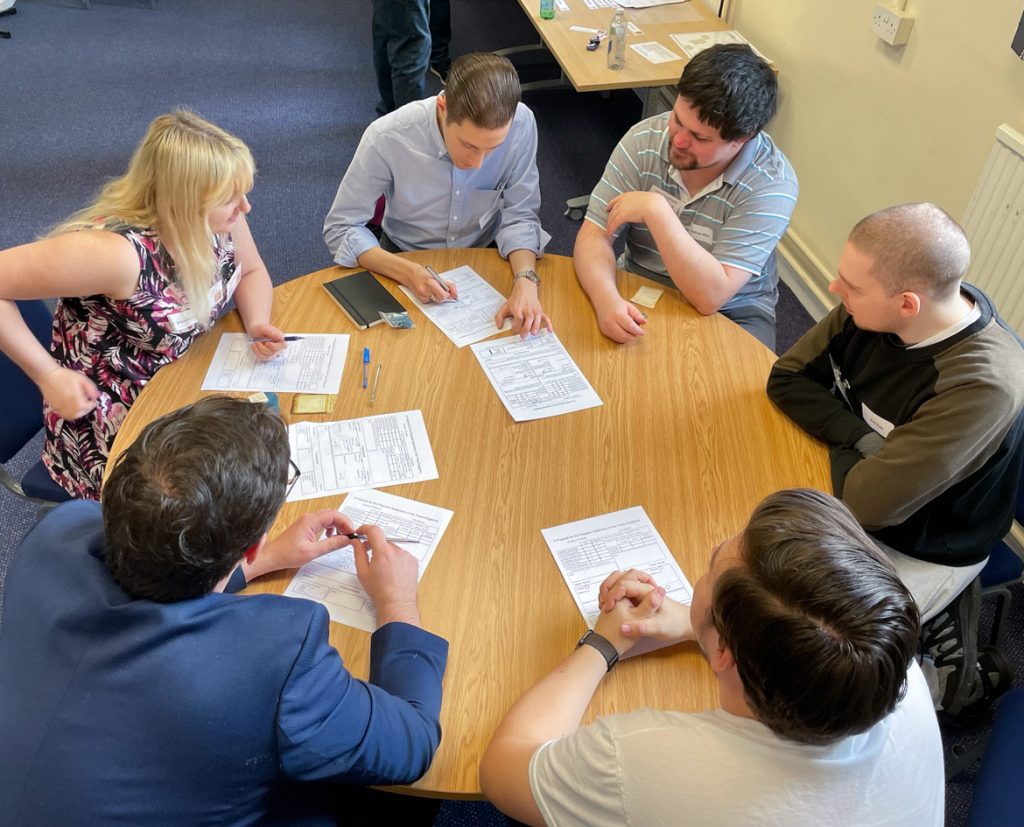
None of us were pleased to have him there but at the same time, we were. Because an end was finally in sight. Even if his ridiculous wants included 23 extra Lords proposed by Parliament, to counterweight the ones that Charles had ennobled during the war. But we found an agreement, including freedoms for the Irish!
Then my son was called away because the Irish were rebelling. He came back about 10 minute later, bragging to his dad about how he’d sorted them out. Charles wanted to take all their independence away from them, and nearly decapitated the poor Church Party Irishman who turned up meekly to ask about his country’s position. It then turned out that the Prince of Wales had not beaten them in battle – they had apparently attacked our forces in a case of mistaken identity, and immediately surrendered as soon as he’d arrived.
Needless to say, Ireland was not given military independence.
Anyway, we managed to hammer out a deal with the Royalist parties, Middle Party, Covenanters and Puritans. A deal everyone was happy with, a deal we could take to Parliament. Even the King begrudgingly gave it his seal of approval.
As a final act of the meeting, Archibald Campbell added that the trial and execution of Oliver Cromwell should be addended to the proposal. It was eventually determined that this could be set aside from the proposal itself, but was definitely going to happen.
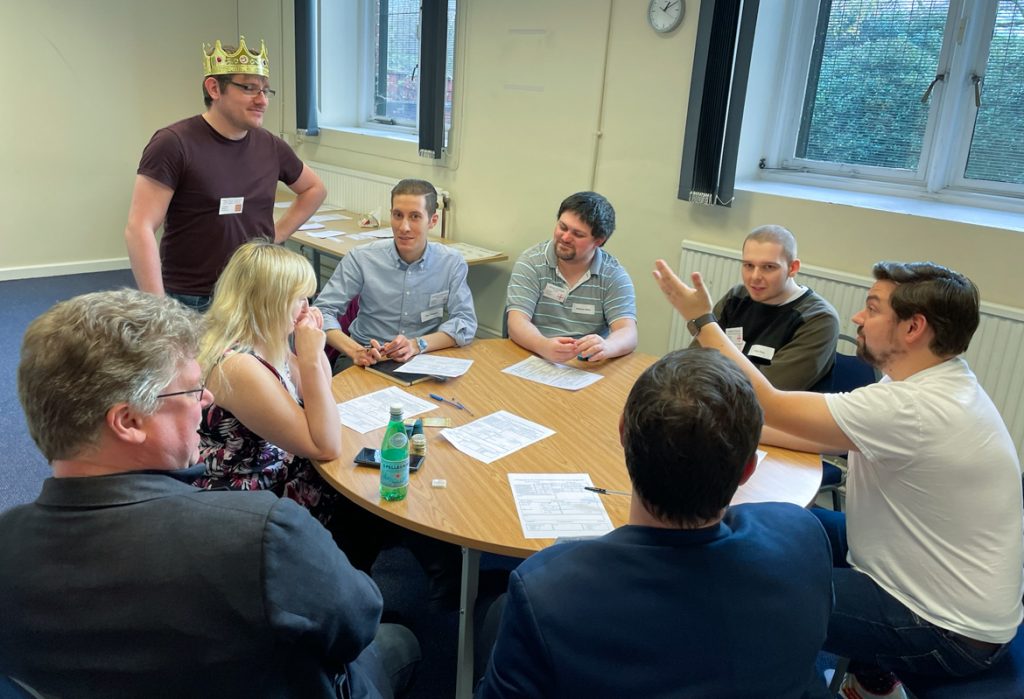
The missing heirs
Around two turns from the end of the game, I suddenly remembered that I had other children. My second eldest son was with the Prince of Wales in the Hague, my eldest daughter was married to William of Orange, and my youngest daughter was with me. But my youngest son and middle daughter were held captive by Parliament. I did know this the whole way through the game, but to be honest had COMPLETELY forgotten about it til now.
So I went on a mission to find my missing children. It seemed they were no longer in London, but no one could say where they were. My trail of leads included the Press, the Irish, the Covenanters and my team mate, which each getting me closer. I found out they had left the country and were in Europe somewhere. Surely it couldn’t be France or the Hague, or we would have been reunited. Spain surely wasn’t happy with my privateering, but surely they wouldn’t harbour someone keeping the Royal Wards hostage?
In fact, it was Sweden, who had opened their doors to the children and the traitor Cromwell. Seeing his death was certainly on the cards made him desperate. He sent a laughable ransom that included meeting all his demands for the government, money and freedom in exile. In return, we sent a gunboat and the Scottish Royalists.
The higher you rise
The Levellers again shut down Parliament, planning to hold a vote on male suffrage.
We would not be stopped. A notice was sent out – Parliament would meet in York instead. We did consider Oxford, but York was safer and had more history for this sort of thing.
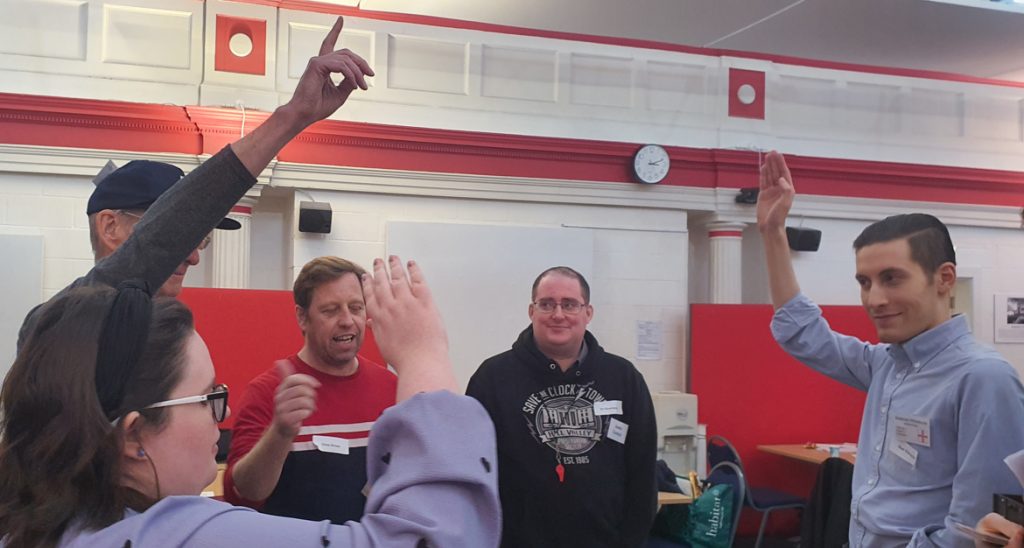
The vote passed unanimously in the Commons, but hit a slight stumbling block when it got to the Lords. Thomas Goodwin, a Puritan who had amassed multiple titles including Archbishop of Canterbury and Chancellor of the Exchequer, did not approve. Luckily, it is a simple vote in the Lords, so the motion carried. The last I heard of Goodwin, he had taken a trip to the colonies, where his political beliefs were likely to find a better home.
We celebrated our victory. It seemed that the day would end on a high for the Royalists…
The harder you fall
But at that very moment, a messenger came to me with the gravest of news. Apparently, the Scottish Royalists had found Cromwell alive in Sweden. Unfortunately, the same could not be said of my son and daughter, who he had killed upon seeing the many English flags on the horizon. He was executed for treason.
I entered official mourning, while my husband berated the Scots. I don’t think those Royalists will be getting any Christmas cards from us.
His ghost later told me that he hoped to raise them as Calvinists and to see one of them on the throne of England. Someone as staunchly Catholic as Henrietta Maria may consider this a fate worse than death.

As the game ended on this low note, I mentioned to the press to announce that I was pregnant. Control said it could be true if I wanted it to be, and I felt that the country could use some happy news at the end of the game.
Summary
Sometimes, the games you look forward to the most end up being letdowns, but this was anything but. There were definite issues that arose from being short-cast, particularly given the on-the-day dropouts that meant the missing players weren’t necessarily in the best slots. And I would say out of all the games I’ve played, it was one of the least suited for first-time players.
But the fantastic underlying game definitely shone through, and there were some very slick elements that other designers should look at. The proposal game was excellent, and Tim as an NPC king is always great to see.
Overall, it has been fantastic to get back to megagames in these final few months of 2021. Here is to many more in 2022!
